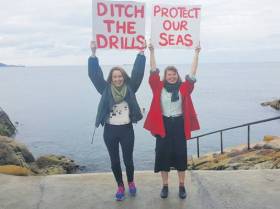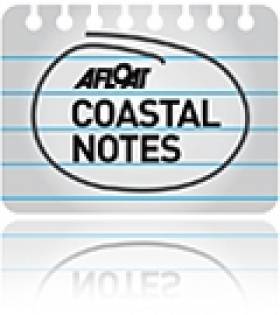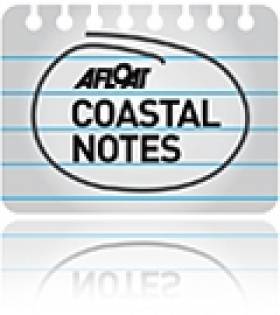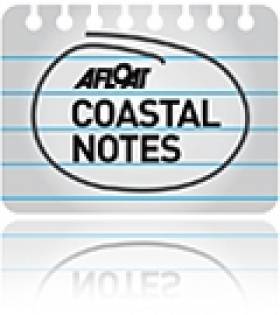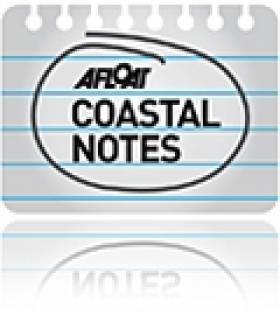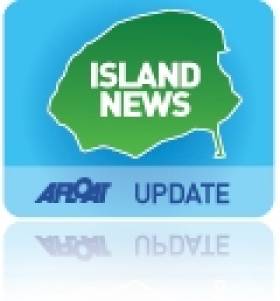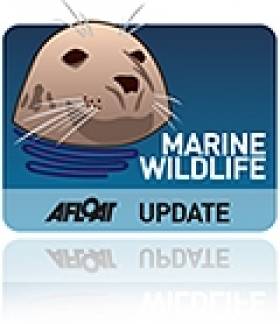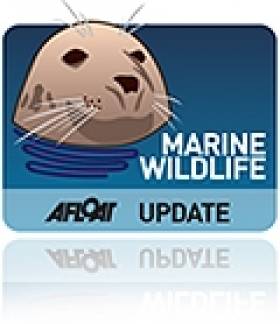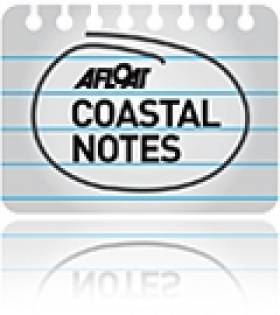Displaying items by tag: Dalkey Island Prospect
#DublinBayOil - The Dublin Bay suburb of Sandycove writes Dublin Gazette could be affected by offshore oil drilling that would damage local “delicate habitats”, according to local Green Party reps.
Una Power, Green Party Representative for Killiney-Shankill is calling on the government to cease further exploration for fossil fuels off the coast of Dun Laoghaire.
Oil exploration is set to start at Kish Bank, just 10km from Killiney Beach.
“This must be stopped,” Ms Power told the Dublin Gazette.
Providence Resources Plc, the Irish-based Oil and Gas Exploration Company, holds a licence (details click link) and (related PDF download), granted by the Department of Communications, Climate Action and Environment to allow for the planning, consent and drilling of an exploration well on the Kish Prospect.
Ms Power said that it is “incredibly worrying that the Government are continuing to grant licenses to explore for fossil fuels, knowing the challenges Ireland faces in meeting our climate change targets, and the negative environmental and health impacts fossil fuels have”.
“We’re calling on the Government to stop the granting of licenses. Oil exploration is set to start at Kish Bank, just 10km from Killiney Beach – this must be stopped.”
The Green Party introduced the Prohibition of Fossil Fuels (Keep It In the Ground) Bill 2017 last week, which seeks an end to further oil and gas exploration in Irish territory as the COP23 conference in Bonn continues.
Afloat adds on the Providence Resources website they state, in February 2013 the company decided to voluntarily surrender the Foreshore Licence following discussions with the Irish government, when it became clear that there had been a transposition error in relation to the EIA Directive. In 2014, the transposition error was finally corrected.
The surrendered Foreshore Licence as previously covered on Afloat, followed the controversial oil project also known as the 'Dalkey Island Prospect' given the close proximity of the Kish Bank Prospect.
To read more on the story from the Dublin Gazette, click here.
Providence Aim to Kickstart Dalkey Island ‘Prospect’ Drilling Plans
#DalkeyOilProspect - Ireland's biggest oil exploration company, Providence Resources is preparing to start work on its Dalkey Island oil drilling once a regulatory 'Snafu' is resolved.
According to Independent.ie (which has more on this story) the Department of the Environment is preparing to amend legislation that will enable Providence Resources to reactivate its foreshore licence, which clears the way for drilling.
Providence handed back its foreshore licence following a legal snarl up over the wording of the permit.
The department had been expected to fix the regulatory issue in May but the timetable has slid.
Latest indications suggest that the new wording will be in place before the end of this year. In its exploration timetable given to investors, Providence has said that it is scheduled to start drilling in the first half of 2015.
Brussels Wants Answers From State Over Seismic Surveys
#SeismicSurvey - The Irish Times reports that the European Commission has demanded an explanation from the State regarding the absence of environmental impact assessments for seismic surveys off the west coast.
The action comes following a complaint lodged in Brussels by the Irish Whale and Dolphin Group (IWDG) in the wake of the recommencing of seismic surveys over the Corrib gas field last month.
As Irish waters are a designated whale and dolphin sanctuary, the IWDG's position is that the State must comply with the EU directive to conduct an environmental impact assessment when licensing such ocean-bound surveys.
The group says it received word from the EC that the issue has been raised with the Department of Energy, and reiterated the need for "strict protection" of cetaceans in Irish and all EU waters.
Last December the IWDG expressed concerns over the potential impact of a 2D seismic survey on harbour porpoises in the Kish Bank Basin in Dublin Bay.
As previously reported on Afloat.ie, Providence Resources subsequently suspended its licence to explore for oil and gas at what was termed the Dalkey Island Prospect.
The Irish Times has more on the story HERE.
Dalkey Island Oil Licence Surrendered
#DalkeyOilProspect – Providence Resources, who have been planning to explore for oil and gas in Dublin Bay, has surrendered its foreshore licence to the Department of the Environment, reports The Irish Times.
The Dublin based exploration company had planned to drill off the coast of Dalkey, in the Kish Basin.
In a statement this afternoon, the company said it made the decision to surrender the licence when it became clear that elements of an EU directive on environmental impact assessment (EIA) "were not transposed correctly in 1999 by the Irish Government". For more on this story click HERE.
Dublin Bay Oilwatch Q&A Information Workshop
#DalkeyIslandPROSPECT – An Oilwatch Q&A Information Workshop, about the issues of drilling for oil and gas in Dublin Bay will be held this Sunday (3 February) between 1-5pm in the Kingston Hotel, Dun Laoghaire.
A panel of speakers will present the following topics; oil industry, financial reward, legal matters and the environment. The event is organised by Save Our Seafront and with the support of other groups. All are welcome to the event, for further details click HERE.
As previously reported on Afloat.ie, the issue of a Foreshore Licence granted to Providence Resources for the Dalkey Island 'Prospect' is the subject of a judicial review that An Taisce will be bringing to the High Court on 19 February.
Dalkey Prospect Foreshore Licence Disputed
#DALKEY OIL LICENCE – An Taisce has alleged the Government acted unlawfully in how it granted Providence Resources a foreshore licence at the Dalkey Island prospect in Dublin Bay, reports The Irish Times.
In High Court proceedings, An Taisce claims the Government wrongly concluded an environmental impact assessment (EIA) was not required to be carried out prior to awarding the licence to Irish-listed oil and gas exploration company.
An Taisce claims that under the relevant EU directive an EIA is required and the decision of September 27th last granting the licence should be quashed. It is also seeking a declaration the Government has failed to properly transpose or implement environmental impact assessment Directive 2011 92 EU into Irish law.
The licence is for an area in the Kish Bank basin and allows Providence carry out a number of activities, including a seismic study, well site survey and the drilling of an exploration well. The edge of the licence area is about 10km from Dalkey Island.
Mr Justice Michael Peart yesterday granted the ex parte application (one side only represented) for leave to bring the judicial review proceedings and returned the matter to February.
As reported earlier this month on Afloat.ie, the Minister for Heritage Jimmy Deenihan announced proposals for six Special Areas of Conservation (SACs) sites to include an area designated between Rockabill to Dalkey Island.
Helicopters Role in Proposed Upgrade of Dalkey Island Harbour
#DALKEY ISLAND FERRY – Up to 500 helicopter flights over an 8-day timeframe could be operating across the 300m wide Dalkey Sound, following proposed plans to upgrade the island's slipway harbour were unveiled last week, reports Jehan Ashmore.
According to consultants that carried out a report for Dun Laoghaire-Rathdown County Council, the proposed upgrade of the slipway, under a PART 8 Scheme, could see a site near Sorrento Point on Coliemore Road, as the desired landing location to load helicopters heading for the island with machine plant, equipment and materials.
Under the proposed development of up to 12 weeks to complete, work would involve raising the existing slipway to create a stepped top surface, widening of the existing channel, a new raised pier section with transitional steps, a handrail, mooring rings and an access ladder.
The consultants Malachy Walsh & Partners and Shaffrey Associate Architects have however indicated that Dun Laoghaire may be an alternative helicopter embarkation point. Total construction costs of the project are estimated at approximately €228,000, however should Dun Laoghaire be opted instead, this would double lift costs compared to Dalkey, adding about 84% to the overall helicopter costs.
The use of helicopter transportation is not new to the island, as in the early 1990's works on the island harbour also saw flights running back and forth to the grounds of the Dalkey Island Hotel, now occupied by a luxury apartment complex.
The consultant's report also adds that Dalkey Island is designated as a Special Protection Area (SPA) for roosting the common, artic & roseate tern species in accordance with the requirements of the EU Habitats Directive 1992, however given the scale and the location of the slipway works, the report concludes that a full appropriate assessment screening would not be required for the Dalkey SPA because it is considered not to have a significant effect on this site.
As previously reported on Afloat.ie the island has also been proposed as a Special Area of Conservation (SAC) as part of six Natura 2000 sites within Irish waters.
Plans and particulars of the proposed slipway upgrade of the Dalkey Island PART 8 Scheme development including timescale of public consultation process, can be found in greater detail to include downloadable PDF documents, by following this LINK.
Providence Not Informed of Dalkey Island Designation
#DALKEY DESIGNATION – The company prospecting for oil off Dalkey in Dublin Bay, Providence Resources said that they had not been given advance information of a Government proposal to designate an area from Dalkey Island to north of Swords as a Marine Special Area of Conservation
Maps provided by the Department of Arts, Heritage and the Gaeltacht showing the location of six proposed marine special areas of conservation appeared to show an overlap between Providence Resources's location for a seismic survey and an area called Dalkey Island to Rockabill, which is earmarked for special conservation.
Designation as a special area of conservation (SAC), or even a candidate area, means development would be extremely problematic.
Minister for Arts, Heritage and the Gaeltacht Jimmy Deenihan yesterday proposed more than 27,000 hectares from Dalkey Island northwards across Dublin Bay to north of Swords be designated such an area. The location was one of six designations made under the EU habitats directive. To read more, see yesterday's Irish Times.
Concern Over Impact of Seismic Survey on Dublin Bay Porpoises
#PORPOISES - The Irish Whale and Dolphin Group (IWDG) has expressed concern over the potential impact of a 2D seismic survey on harbour porpoises in Dublin Bay.
As recently reported on Afloat.ie, Providence Resources has been granted a foreshore license for the Dalkey Island Prospect in the Kish Bank Basin to allow for a well site survey, and exploration well and a seismic survey.
But the IWDG has written to Minister of State Jan O'Sullivan suggesting that he Environmental Risk Assessment (ERA) conducted on the area is deficient.
The group argues that the ERA has not assessed the footprint of the seismic survey, saying the mitigation proposed is inadequate and that the disturbance and impact to cetaceans – especially harbour porpoise – is "potentially significant and in contravention of national legislation and EU Directives".
Moreover, the IWDG claims that an Environmental Impact Assessment (EIA) of the effect of a seismic survey on harbour porpoise "doesn’t seem to have been carried out".
The harbour porpoise, which is an Annex II species, is entitled to strict protection. The species has been recorded at very high densities in Dublin Bay during surveys carried out by the IWDG in 2008 on behalf of the National Parks and Wildlife Service (NPWS).
The group says that impact monitoring is needed to gather data on the effects of seismic surveys on harbour porpoises, and recommends it as an additional condition on the license.
"Compliance with the NPWS guidelines does not constitute monitoring and as porpoises are elusive and spend 95% of their time underwater and are difficult to see in a sea state greater than Force 1, the guidelines do not serve to protect them once the works are on-going.
"In addition there are specific data required on their site usage prior to the works and a monitoring plan to assess how they recover after the works."
Moreover, the IWDG claims that in this instance the NPWS "are negligent, as they are not providing strict protection to an Annex II species."
Earlier this year Environment Minister Phil Hogan rejected a call from Tánaiste Eamon Gilmore and others for a public enquiry into the Dalkey Island foreshore licence.
Dublin Bay Protesters Demonstrate Against Dalkey Oil Exploration
#DALKEY ISLAND PROSPECT – Hardy swimmers and non-swimmers alike gathered at the Forty Foot bathing pool in Sandycove to voice their opposition to plans to allow exploration for oil in Dublin Bay off Dalkey, reports The Irish Times.
Last month the Department of the Environment awarded a foreshore licence to Providence Resources for exploratory drilling six kilometres from the Dalkey coast.
Providence has argued the project would be of significant economic benefit to Ireland with up to 40 per cent of profits from production accruing to the State. But groups such as Dublin Bay Solidarity, which organised the protest, have raised concerns about environmental issues and taxation, and have criticised the level of public consultation on the licence.
Afloat.ie adds that this latest protest held last Saturday at the popular bathing place in south Dublin Bay follows a protest outside the gates of Dail Eireann last week.
Close to 200 people attended to voice similar concerns, among them that a public inquiry was not granted and how our natural resources affect all the people of Ireland both locally as well as nationally, which needs to be highlighted and discussed.



























